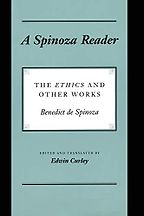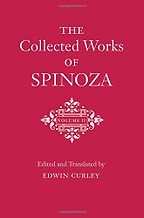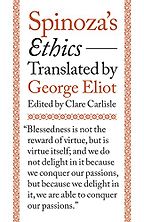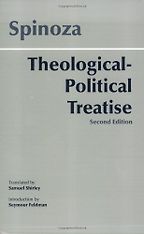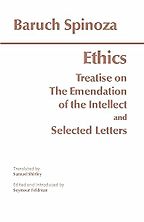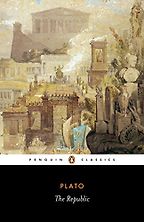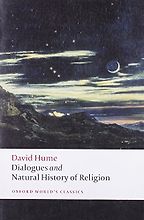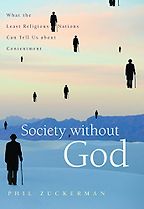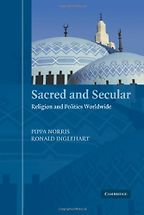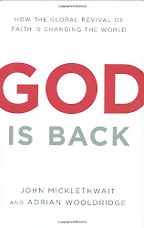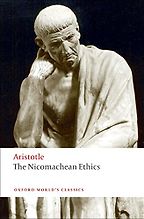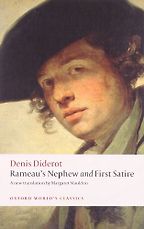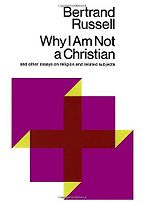Books by Baruch Spinoza
Spinoza's Ethics, Translated by George Eliot
by Baruch Spinoza, Clare Carlisle & George Eliot
"Hatred is increased by reciprocal hatred, but can be destroyed by love"—Baruch Spinoza.
Rather excitingly, Princeton University Press has published George Eliot's translation of Baruch Spinoza's Ethics, which previously was quite hard to buy. The book is edited by Clare Carlisle, a philosopher at King's College London, whose introduction details the influence of Spinoza on George Eliot's later literary work.
The influence of Spinoza on George Eliot is discussed in this interview on the Best Philosophical Novels, with philosopher and novelist Rebecca Goldstein.
“The first task Spinoza set himself in the Tractatus is to undermine the traditional notion of the Bible as the inerrant word of God. He takes the five so-called books of Moses and shows why they probably aren’t by a single person, and certainly not by Moses. As he goes through the various books of the Old Testament, what he’s out to establish is that these writings reflect human ideas, and that they are the ideas of particular people expressed at a particular place and a particular time. Most educated people accept that now, but it was a horrifying idea to the religious establishment in Spinoza’s time…Spinoza thought that the rules by which Jews lived, as derived from the Bible, merely reflected the circumstances of the early state of Israel, and because Israel no longer existed, and times had moved on, he thought these rules had become irrelevant. The dietary laws and so forth that bound the religious community of his time, and which continue to bind the orthodox, were all based, he felt, on a misunderstanding. It was a mistake to suppose that God wanted you to go on living like that even today.” Read more...
Anthony Gottlieb, Philosopher
The Ethics
by Baruch Spinoza
He is of course one of the great 17-century rationalists, someone who made all the claims for reason that have ever been made. There is great ambiguity in him. He was called a God-intoxicated man by the poet Novalis. But he was also perhaps one of the most effective atheists of all time.
Interviews where books by Baruch Spinoza were recommended
Rebecca Goldstein on Reason and its Limitations
Baruch Spinoza thought reason could do it all, but experience tells us otherwise. Philosopher Rebecca Goldstein recommends both the books that made the best case for reason—and the most successful critiques.
The best books on God, recommended by Anthony Gottlieb
The philosopher and former executive editor of The Economist, Anthony Gottlieb, discusses religion and suggests that belief in God only truly declines in a society when economic development brings existential security.
The best books on Being Good, recommended by A C Grayling
What does a moral life entail? How does one achieve it? Philosopher AC Grayling picks the best books on “being good.”
-

1
The Collected Works of Spinoza (Volume I)
by Baruch Spinoza & Edwin Curley -

2
Behind the Geometrical Method: A Reading of Spinoza's Ethics
by Edwin Curley -

3
A Study of Spinoza's Ethics
by Jonathan Bennett -

4
The Explainability of Experience: Realism and Subjectivity in Spinoza's Theory of the Human Mind
by Ursula Renz -

5
Spinoza on Philosophy, Religion, and Politics: The Theologico-Political Treatise
by Susan James
The best books on Spinoza, recommended by Steven Nadler
The best books on Spinoza, recommended by Steven Nadler
In 1656 Baruch Spinoza was thrown out by Amsterdam’s Portuguese-Jewish congregation for ‘abominable heresies’ and ‘monstrous deeds’, ensuring he would be forever remembered as a radical thinker. Here Steven Nadler, a professor at the University of Wisconsin-Madison and author of a number of books on Spinoza, talks us through the life and work of the 17th century philosopher whose worldview remains, in many ways, remarkably modern.
